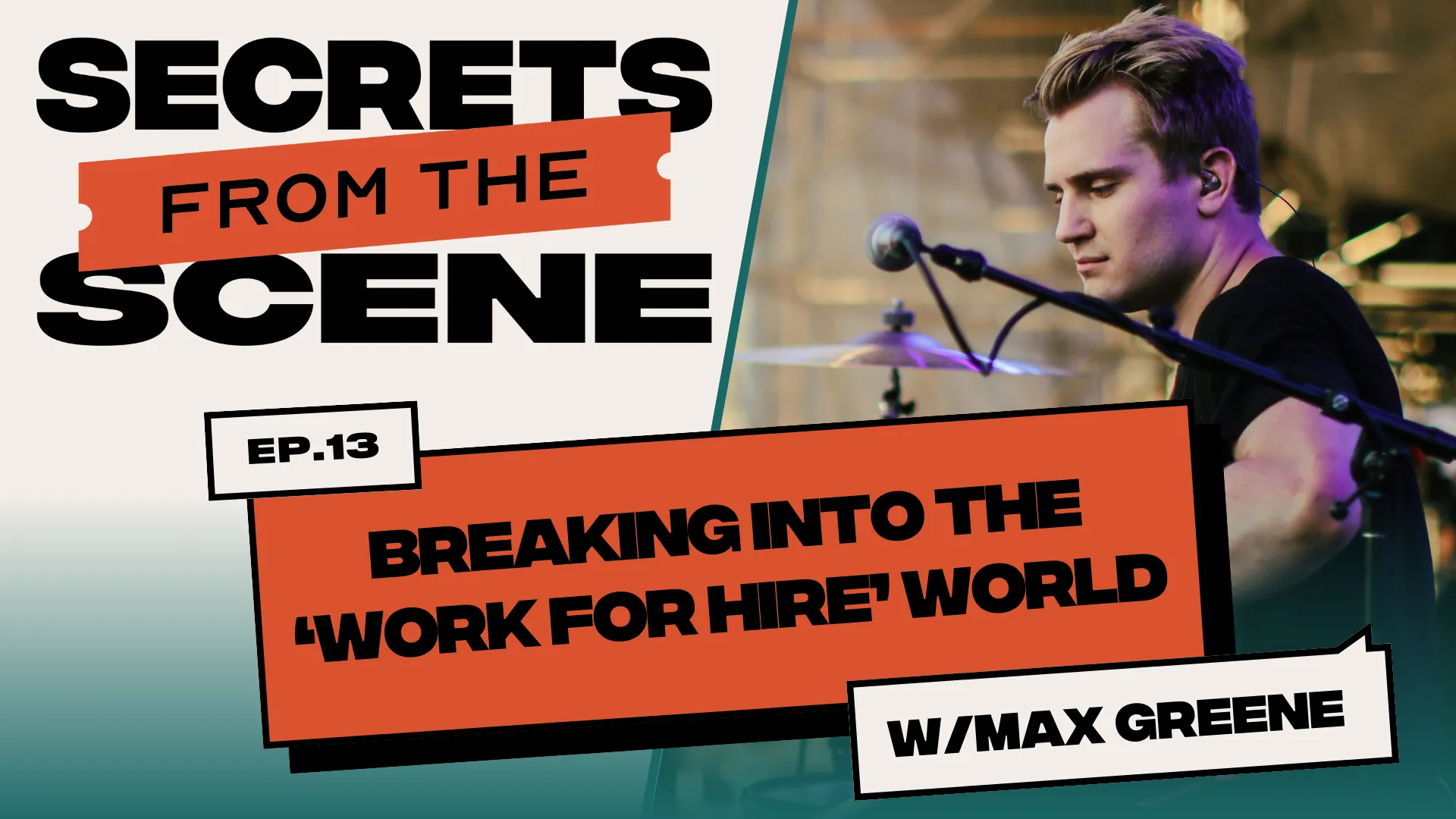Show Notes
“Work for hire” gigs can be a critical part of a musician’s career. If you’re trying to make a living by playing your instrument, for many, this is where it’s at. But what does it take to break into this side of the industry? If you get hired to do a gig, how do you make sure it’s successful?
In this episode, Max Greene, a seasoned musician and engineer, speaks about the fundamental aspects of preparing for a 'work for hire' gig. Whether it be for live shows, recording sessions, music videos, or church services, understanding the song, the part, and the specific expectations of the person who's hiring you, are all critical. Max discusses the mindset needed for such gigs, emphasizing the necessity for consistency in performance, flexibility, and a positive attitude. Moreover, we both stress the importance of good communication, being prepared with one's instruments, and understanding the environment and requirements of the gig. Max's journey of self-improvement through learning from past experiences and pushing himself past his comfort zone, provides helpful insights for budding session musicians.
watch now on YouTube:
Episode Links and Mentions
Connect with the Guest
Connect with Me
Give Feedback
📬 Send me a message: stephen@secretsfromthescene.com
💬 Suggest a guest or topic: podcast@secretsfromthescene.com
🎙️ Brought to you by:
--------------------------------
Thank You
This podcast is made possible by the hard work, expertise, and commitment of my team:
Max Greene and Joey Biehn. I'm forever grateful.
--------------------------------
Theme Music: "Thankful" Courtesy of LUEDVIG

